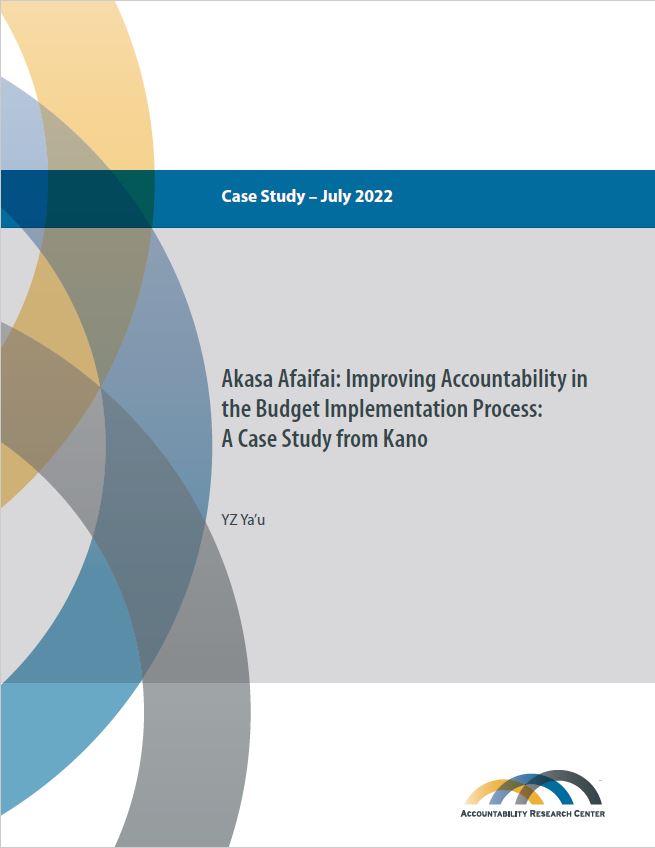
Akasa Afaifai: Improving Accountability in the Budget Implementation Process: A Case Study from Kano
Date: July 2022
Author(s): Y.Z. Ya’u
Publication type:
Published by: Accountability Research Center
“Sandwich strategies” are interactive processes in which reformers in government take tangible measures that reduce the risks of citizen action from below, driving virtuous circles of mutual empowerment between pro-accountability actors in state and society. This case study is one of a set of 18 published here, which are among those included in comparative analyses of whether and how sandwich strategy initiatives drive institutional change.
Most state budgets are opaque—especially disbursements, which are key to inform the citizen action and oversight needed to encourage effective public investment. This case study, from Kano state in Nigeria, describes an initiative of the state governor to publish the minutes of the weekly executive council meeting, which included the planned budget release. In 2011, when Governor Rabiu Kwankwaso began these weekly publications, a local CSO supported by donor funding began broadcasting a weekly radio program. Akasa Afaifai (“Let’s clarify things openly” in Hausa) helped disseminate easily understandable information about the release.
Akasa Afaifai featured calls from citizens, as well as government representatives as guests. In several cases, citizens used information from the show to hold government accountable. In one example, citizens complained on the show about the operation of 26 vocational training institutes set up by the governor, including unclear selection criteria and admission of inappropriate candidates. In response to these complaints, the following week the special advisor to the governor came on the show and rather than denying the allegations, encouraged citizens to use reporting boxes at the local government level to share their complaints. Ultimately, assisted by a report on the issues by the local CSO running the radio program, the governor set up an investigative committee and dismissed civil servants found complicit.
Akasa Afaifai ran regularly until 2014; the public release of information about budget disbursements had ended by 2019.
